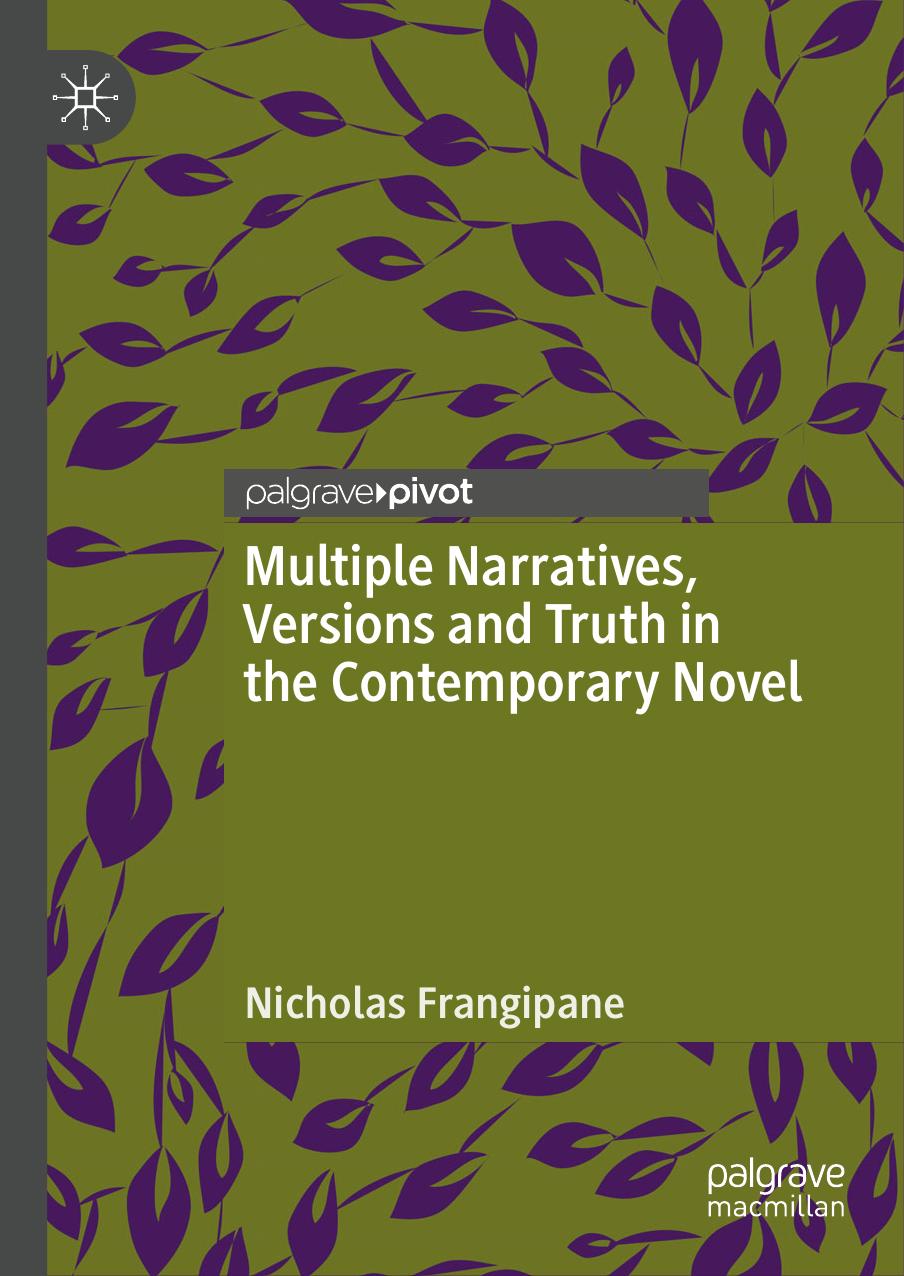Multiple Narratives, Versions and Truth in the Contemporary Novel by Nicholas Frangipane

Author:Nicholas Frangipane
Language: eng
Format: epub, pdf
ISBN: 9783030321932
Publisher: Springer International Publishing
3.3 The Distinction of (Non) Fiction? Double Narratives and Ethics in Non-fictional Texts
In The Distinction of Fiction, Dorrit Cohn looked at a number of works that are nominally fiction but borrow heavily from the authors’ lives from the early to mid-twentieth century. She concluded that “these ambiguous texts indicate…that we cannot conceive of any given text as more or less fictional, more or less factual, but that we read it in one key or the other—that fiction, in short, is not a matter of degree but of kind” (35). In other words, trying to suss out the fiction from the non-fiction doesn’t make sense, because it is how we read each type of book that is different, not the books themselves. Huber asserts that postmodernism has left us in a position where we feel the ultimate inaccessibility of the real—in that case, to borrow Cohn’s terms, we read everything in the key of fiction in a postmodernist frame of reference. This gives an unusual status to post-postmodernist non-fiction texts, placing them beyond the argument of representing truth, and putting them in a position to attempt to construct truth from the outset. Faced with this, post-postmodernist writers have two ways to create truth: They can stick to the historical record, or they can attempt to recreate qualia. In the following examples, the writers I look at have attempted to do both, making them a non-fiction species of reflexive double narratives. Many post-postmodernist writers of so-called true stories insist on exposing the ambiguities and impossibilities of telling the truth. A number of writers, including Dave Eggers and Doris Lessing, have explored these questions in works that they have labeled (perhaps for legal reasons post-Frey) “fiction,” but that recount true events with a fictional spin in an attempt to find post-postmodernist truths in their own lives and the lives of others.
Determining the truth takes on a new ethical dimension in these works—something these writers obviously struggle with. In “The Difficulty of Imagining Other People,” Elaine Scarry notes that “The way we act toward ‘others’ is shaped by the way we imagine them” but she warns that “Both philosophic and literary descriptions of such imaginings show the difficulty of picturing other persons in their full weight and solidity” (98). Scarry argues that there is a limit to what we can imagine, and that imagining others is problematic because “The problem with discussions of ‘the other’ is that they characteristically emphasize generous imaginings, and thus allow the fate of another person to be contingent on the generosity and wisdom of the imaginer” (106). In a post-postmodern frame of reference, the idea of an “imaginer” takes on new weight, because writers know that they must imagine real people into existence on the page. Because of this, writers of non-fiction have written some of the most carefully thought-out justifications of their narratorial choices.
The question of human rights and narrative ethics is something that Dave Eggers has been navigating throughout his career. His early books explored the power
Download
Multiple Narratives, Versions and Truth in the Contemporary Novel by Nicholas Frangipane.pdf
This site does not store any files on its server. We only index and link to content provided by other sites. Please contact the content providers to delete copyright contents if any and email us, we'll remove relevant links or contents immediately.
| Ancient & Classical | Arthurian Romance |
| Beat Generation | Feminist |
| Gothic & Romantic | LGBT |
| Medieval | Modern |
| Modernism | Postmodernism |
| Renaissance | Shakespeare |
| Surrealism | Victorian |
4 3 2 1: A Novel by Paul Auster(11049)
The handmaid's tale by Margaret Atwood(6852)
Giovanni's Room by James Baldwin(5878)
Big Magic: Creative Living Beyond Fear by Elizabeth Gilbert(4723)
Asking the Right Questions: A Guide to Critical Thinking by M. Neil Browne & Stuart M. Keeley(4576)
On Writing A Memoir of the Craft by Stephen King(4213)
Ego Is the Enemy by Ryan Holiday(3991)
Ken Follett - World without end by Ken Follett(3972)
The Body: A Guide for Occupants by Bill Bryson(3802)
Bluets by Maggie Nelson(3711)
Adulting by Kelly Williams Brown(3671)
Guilty Pleasures by Laurell K Hamilton(3586)
Eat That Frog! by Brian Tracy(3514)
White Noise - A Novel by Don DeLillo(3436)
The Poetry of Pablo Neruda by Pablo Neruda(3367)
Alive: The Story of the Andes Survivors by Piers Paul Read(3311)
The Bookshop by Penelope Fitzgerald(3226)
The Book of Joy by Dalai Lama(3218)
Fingerprints of the Gods by Graham Hancock(3213)
